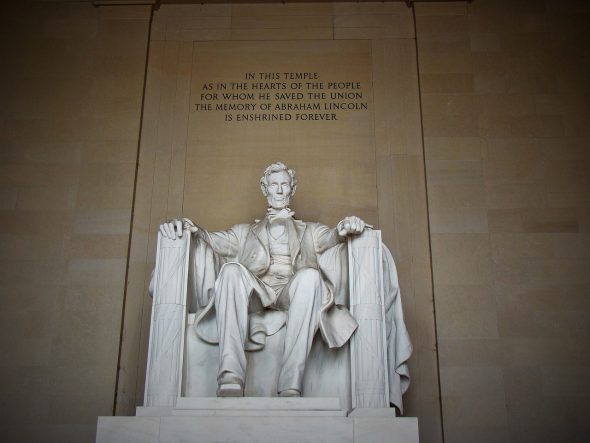
Lincoln Memorial
I’m a Democrat and a liberal but I find the theory unconvincing and offensive.
By Dave Cieslewicz – Jan 5th, 2022 12:20 pm
I call myself a moderate these days, but truth be told, I still meet most of the liberal litmus tests. I’m pro-choice, pro-labor and pro-environment. I think climate change is an existential threat as are Donald Trump and Ron Johnson. I’m for a higher minimum wage and higher taxes on the rich. I’m for lower prison populations and lower carbon emissions. I’m for a path to citizenship for undocumented immigrants and I’m for more bike paths for everyone.
But I start to get off the liberal train at the identity politics station. Because right now, for liberal elites and activists (though not for much of the rank and file) identity politics, and something called “critical race theory,” is at the very heart of what it means to be a liberal.
Let me try to explain how this theory departs from what I — and most Americans — believe. I’m against discrimination, I believe in the goal of a color blind society and I believe America is a place where everyone should have a fair shot at success based solely on their native talents and hard work. I believe my country was founded in 1776 on the idea of freedom and not in 1619 on a foundation of slavery.
Now, most average Americans would not view anything I wrote above as being anything but true, and certainly not controversial. It’s the traditional American creed.
But in most of academia, in the pages of the New York Times, on NPR and PBS and in the bluest of districts, I’ve just laid down the gauntlet. In places like that, it can feel like critical race theory is like gravity; a natural law that must be accepted.
But it’s not. It really is just a theory, like Marxism — actually a lot like Marxism. We have a choice. We can buy into or not. For myself, I find it both unconvincing and deeply offensive.
Most of us have encountered this way of thinking, but we might not know what’s behind it. When you hear phrases like “white privilege” or “white supremacy” or “systemic racism” or “equity” or “anti-racism,” that’s critical race theory being injected into policy discussions and the culture.
The basic idea is that the world is divided into “oppressors” and victims and that none of us control which group we fall into — that’s determined only by our race and gender. So, if you are a Black woman who went to Harvard Law you are a victim. If you are a white guy with a high school education who cleans her office, you are an oppressor.
